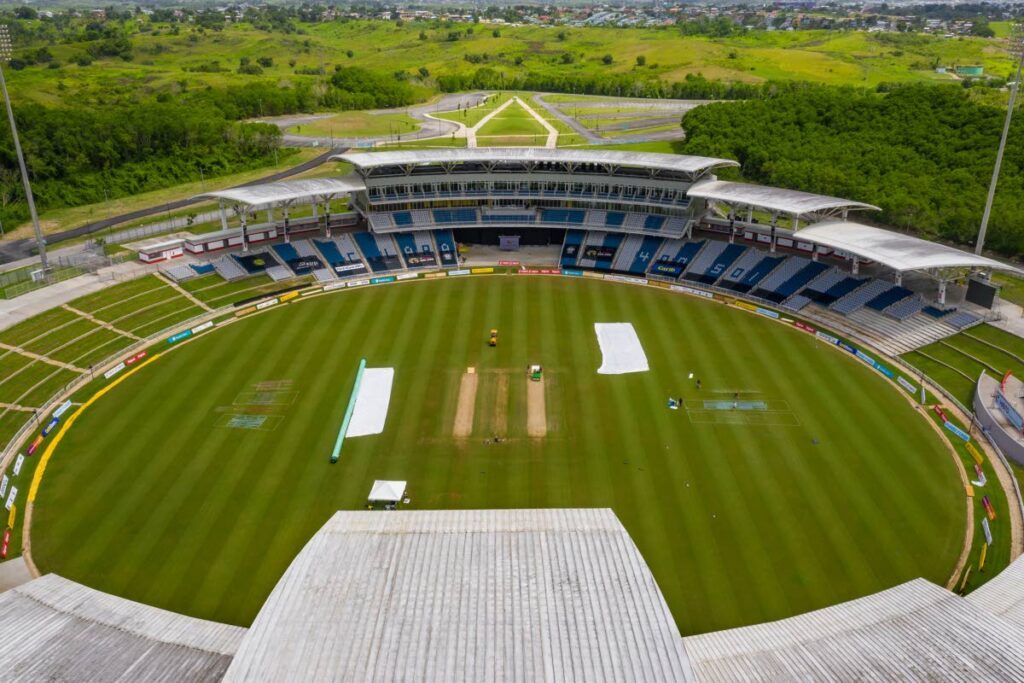Soundbites only won't do

THE EDITOR: As an established researcher in the field of sport policy, with decades of experience in sports and education, both domestically and internationally, I was genuinely delighted to learn that Prime Minister Rowley and his team took a break from their retreat to discuss the operationalisation of the Brian Lara Cricket Academy.
Dr Rowley acknowledged that the academy's concept had never been fully implemented and expressed commitment to further discussions. However, it's important to emphasise that discussions and mere soundbites are not enough.
The discussions surrounding sports academies in TT have been ongoing for almost four decades. They were initially proposed in a 1988 report and White Paper, suggesting the establishment of a national sporting institute within the University of the West Indies (UWI). This institute was intended to offer academic programmes in sports and provide scholarships to talented athletes.
In 2004, a government task force recommended that this institute should function as an autonomous entity, catering to a wide range of sporting disciplines. Additionally, in that year a "400 not out promise" was made that within that autonomous entity would be the sport of cricket. By 2007, the Government decided that the University of TT (UTT) would host the national institute of sport, with the Brian Lara Academy as the home for cricket within that institute.
Regrettably, the completion of the academy was delayed by ten years, and by the time it was finished the Academy of Sport and Leisure Studies (ASLS) at UTT had already begun to decline. Between 2010 and 2015, the ASLS suffered significant damage to its reputation, staff reductions, and programme cancellations.
From 2015 onwards, there were no meaningful efforts to restore or rejuvenate the ASLS. Funding diminished, scholarships disappeared, its importance dwindled, and the academy became more of a social venue than an educational and sporting institution. This has led us to the current situation, where we are starting over with discussions and soundbites.
TT has lost valuable time and now finds itself starting from behind, necessitating an exceptional effort to catch up. Therefore, any inclination towards discussions without concrete actions will once again deprive us of the benefits of having a national sporting academy. To expedite this process I am offering some unsolicited free recommendations.
Firstly, PM Rowley, it is crucial to recognise that sporting academies are still very effective. There is no need to commission a list of consultants to establish this fact. There is ample research available on the subject, including the effectiveness of the ASLS.
This recommendation does not negate due diligence but suggests that naysayers about the value of academies should be ignored. Months of discussing what we already known is unhelpful and counterproductive.
Secondly, sporting academies require long-term commitment, can sometimes face challenges and may fail to meet expectations. However, most failures occur mainly due to hiring the wrong personnel.
According to Forbes magazine, the cost of hiring the wrong person is at least 30 per cent of their expected first-year earnings. Hence, a poor hire with an expected first-year earnings of $120,000 would cost the organisation an additional $36,000. The impact is even more significant for higher-level positions.
Therefore, my recommendation is to avoid appointing political hired guns. For reference, they are typically individuals with short-term, politically motivated objectives, often disregarding long-term consequences and effectiveness. They are often unqualified for their roles, appointed based on notoriety or political favours and generally leave institutions or organisations in a worst situation.
This recommendation does not imply that appointments cannot be political but emphasises that they should not be political hired guns.
Thirdly, the focus should be on establishing the academy as a semi-autonomous institution. This does not mean it cannot collaborate with an academic institution, but it should have its own dedicated funding, directorate, and operational principles. It should possess the agility to make decisions promptly, with personnel directly accountable for its successes and failures.
Past experiences have demonstrated that when the primary agency faces challenges, it affects all other aspects. To ensure the academy's success, this should not be the case in the future. This recommendation doesn't suggest a lack of oversight but emphasises granting autonomy to qualified professionals to maximise success.
I am looking forward to the operationalisation of the Brian Lara Cricket Academy and I hope my recommendations are considered and contribute to the advancement of a proven approach to sporting success.
DR MORIBA BAKER
via e-mail


Comments
"Soundbites only won’t do"